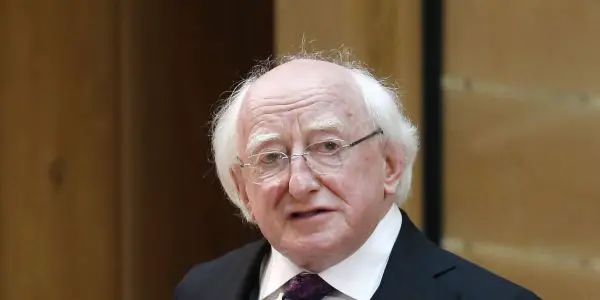President Michael D Higgins has spoken of our responsibility as human beings to help people who are suffering in the world today, just as the Irish suffered during the Great Famine.
He was speaking at the annual National Famine Commemoration at Cork University.

President Higgins called the Great Famine as the single most important event in the history of this country, giving rise to a “distinctive form of Irish modernity”, and which brought out the “very best and worst instincts of humanity”.
He mentioned the British government’s laissez faire attitude to the suffering taking place in Ireland, with them choosing not to intervene and allow the events to take their course.
President Higgins said that given the “catastrophic dimension” of Ireland’s history, “we must deliver not only charity but justice”.
President Higgins spoke of the three main challenges facing the world in the 21st century; climate change, the urgent need to help refugees and sustainable development.
He said fulfilling commitments of the Sustainable Development Goals and the Paris Climate Accord will be a struggle but it cannot be “met with such an indifference as would mean simply abandoning and jettisoning millions of our fellow human beings”.
President Higgins also spoke about how the Famine played a major role in the formation of Irish America, as millions of people emigrated in order to survive.
He pointed out that the bond between the two countries is still “treasured today”.
He was speaking in front of a crowd that included Ambassadors to Ireland from 52 different countries, Lord Mayor of Cork and various university officials and students.
The annual commemoration took place to pay tribute to the millions of people who died and emigrated during the Great Famine.
The day included music performances, words of remembrance and wreath laying ceremonies.
A replica mud cabin, that would have been similar to that lived in by the Irish peasants during the Famine, was built on campus as a stark reminder of the suffering endured.
Mike Murphy, head of Cartography in UCC’s Geography Department said there could have been as many as two million people were living in these mud cabins in 1841.
President Higgins also spoke about the impact of the Famine on the Irish language.
Records show that there were up to four million Irish speakers in the country in the 1830s. By 1851 after the Famine had decimated the country, there were only 1.5million Irish speakers according to Census records.
